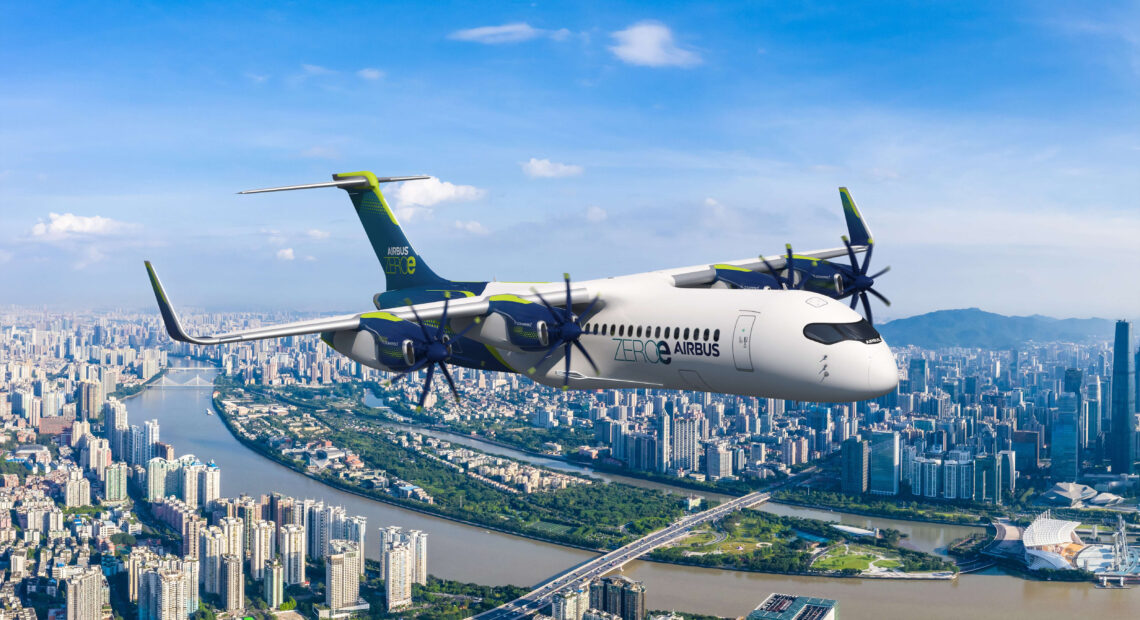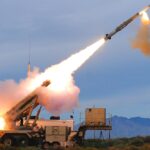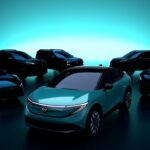Airbus presents hydrogen aircraft technologies

At 2025 Airbus Summit
At the 2025 Airbus Summit, the aerospace giant provided a major update on its efforts to revolutionise commercial aviation, focusing on hydrogen-powered aircraft technologies.
Airbus outlined its plans to introduce a next-generation single-aisle aircraft, potentially entering service in the second half of the 2030s, and unveiled its revised roadmap for the ZEROe project, which is focused on advancing hydrogen-powered flight.
The summit, held in Toulouse from March 24 to 25, 2025, served as a platform for Airbus to reaffirm its commitment to developing a commercially viable hydrogen-powered aircraft. The company presented key technological advancements integral to this goal, particularly developing a fully electric, fuel-cell-powered commercial airliner.
Following years of extensive research into hydrogen aviation, Airbus is positioning hydrogen fuel cells as the most promising long-term solution to decarbonise the aviation sector.
Bruno Fichefeux, Airbus Head of Future Programmes, emphasised the company’s dedication to hydrogen as a core element of its strategy. “Hydrogen is at the heart of our commitment to decarbonise aviation,” Fichefeux remarked.
“While we have adjusted our roadmap, our dedication to hydrogen-powered flight is unwavering. Just as we saw in the automotive sector, fully electric aircraft powered by hydrogen fuel cells have the potential in the longer term to revolutionise air transport for the better, complementing the sustainable aviation fuel pathway.”
Conceptual design
One of the key highlights of the Summit was the presentation of a new conceptual design for a hydrogen-powered aircraft. This concept features four 2-megawatt electric propulsion engines, each powered by a hydrogen fuel cell system that converts hydrogen and oxygen into electrical energy.
Two tanks would supply the fuel cells with liquid hydrogen. This cutting-edge concept is still in its early stages, but it represents a critical step forward in developing hydrogen-powered aviation. Airbus plans to refine the idea in the coming years through further testing, focusing on hydrogen storage, distribution, and propulsion systems.
Glenn Llewellyn, Head of the ZEROe Project at Airbus, provided an update on the company’s progress. “Over the last five years, we have explored multiple hydrogen-propulsion concepts, before down-selecting this fully electric concept,” he explained.
“We are confident it could provide the necessary power density for a hydrogen-powered commercial aircraft and could evolve as we mature the technology. In the coming years, we will concentrate on advancing the storage, distribution, and propulsion systems, while also advocating for the regulatory framework needed to ensure these aircraft can take flight.”
Airbus’s journey to hydrogen-powered aviation technologies has already seen several milestones. In 2023, the company successfully demonstrated a 1.2-megawatt hydrogen propulsion system. In 2024, it completed end-to-end testing of an integrated fuel cell stack, electric motors, gearboxes, inverters, and heat exchangers.
Significant strides
Airbus has also made significant strides in addressing the complex challenges of handling and distributing liquid hydrogen in flight.
In collaboration with Air Liquide Advanced Technologies, Airbus has developed the Liquid Hydrogen BreadBoard (LH2BB) in Grenoble, France. This cutting-edge system will undergo integrated ground testing in 2027 at the Electric Aircraft System Test House in Munich, where it will be combined with the propulsive bench and hydrogen distribution system for comprehensive system validation.
While significant technological advancements are being made, Airbus acknowledges that the development of a hydrogen aviation economy extends beyond the aircraft itself. A robust regulatory framework and the emergence of necessary infrastructure are essential for the widespread adoption of hydrogen-powered flight.
Airbus remains committed to collaborating with regulators, suppliers, and industry stakeholders to create the conditions necessary for hydrogen aviation to become a reality at scale.
The presentation at the 2025 Airbus Summit marks a critical moment in Airbus’s long-term strategy to decarbonise aviation and transform the industry. With continued advancements in hydrogen technologies, the company is paving the way for a cleaner, more sustainable future for air travel.
Image: CGI of Airbus’s ZEROe fully electric hydrogen-powered four-pod aircraft. Credit: Airbus













